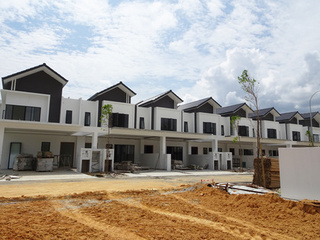
Starting a new construction project is a significant endeavor that requires both meticulous planning and adherence to numerous regulations. Zoning laws are one of the most important factors that can substantially impact the progress and success of your project. Read this blog and reach out to the seasoned Florida construction attorneys at Ansbacher Law to learn more about how zoning laws can affect your construction project.
What Are Zoning Laws and Why Are They Important?
Zoning laws are regulations that govern land use within specific geographic areas. They dictate what can be built where, the purpose of the structures, and how the land can be utilized. These laws are essential for maintaining orderly development, ensuring the safety and welfare of residents, and preserving the character of communities. Zoning laws can be complicated, encompassing various aspects such as building height, density, setbacks, and use categories (residential, commercial, industrial, etc.).
The Florida Statutes, particularly Chapter 163, Part II, known as the “Community Planning Act,” provides the legal framework for zoning regulations. This legislation empowers local governments to create and enforce comprehensive plans and zoning ordinances. These local zoning regulations must align with the state’s planning goals and objectives, ensuring a cohesive approach to development.
How Can Zoning Affect Your Construction Plans?
Zoning can significantly impact your construction plans in several ways. To start, zoning classifications determine the type of structures that can be built on a property. For example, if your land is zoned for residential use, constructing a commercial building would generally be prohibited without obtaining a zoning change or variance. Similarly, specific zoning categories may limit the density of development, affecting how many units or buildings you can construct on a given parcel of land.
Setback requirements, which dictate the minimum distance a building must be from property lines, streets, and other structures, can also influence the design and layout of your project. Height restrictions, another common zoning regulation, might limit the number of stories or the overall height of your buildings, impacting both design and cost.
Additionally, zoning laws can include provisions for environmental protection, such as preserving wetlands, maintaining green spaces, and ensuring sustainable development practices. For example, Florida’s Land Use and Environmental Dispute Resolution Act (Florida Statutes Chapter 70) provides mechanisms for resolving disputes related to land use decisions, including zoning conflicts, thereby emphasizing the importance of compliance with zoning regulations.
How Can I Best Comply With Zoning Requirements?
Some of the ways in which you can best navigate zoning requirements in your area are as follows:
- Research Local Zoning Ordinances: Begin by thoroughly understanding the zoning classifications and regulations that apply to your property. Local government websites often provide zoning maps and detailed descriptions of zoning categories.
- Consult with a Zoning Attorney: Engaging a Florida construction lawyer experienced in zoning matters can provide invaluable guidance. They can help interpret complex regulations, represent you in hearings, and facilitate communications with local planning authorities.
- Attend Pre-Application Meetings: Many local governments offer pre-application meetings where you can discuss your project with planning staff. These meetings can provide clarity on zoning requirements, identify potential issues early, and offer solutions.
- Apply for Necessary Permits and Variances: If your project does not conform to existing zoning regulations, you may need to apply for a variance or a zoning change. This process involves submitting detailed plans, attending public hearings, and justifying why the variance or change should be granted.
- Stay Informed and Involved: Zoning regulations can evolve, so staying informed about changes in local zoning laws is crucial. Participating in community meetings and being proactive in local planning processes can also help you stay ahead of potential issues.
If you have further questions or wish to speak with our seasoned team of construction lawyers, simply contact Ansbacher Law today.

